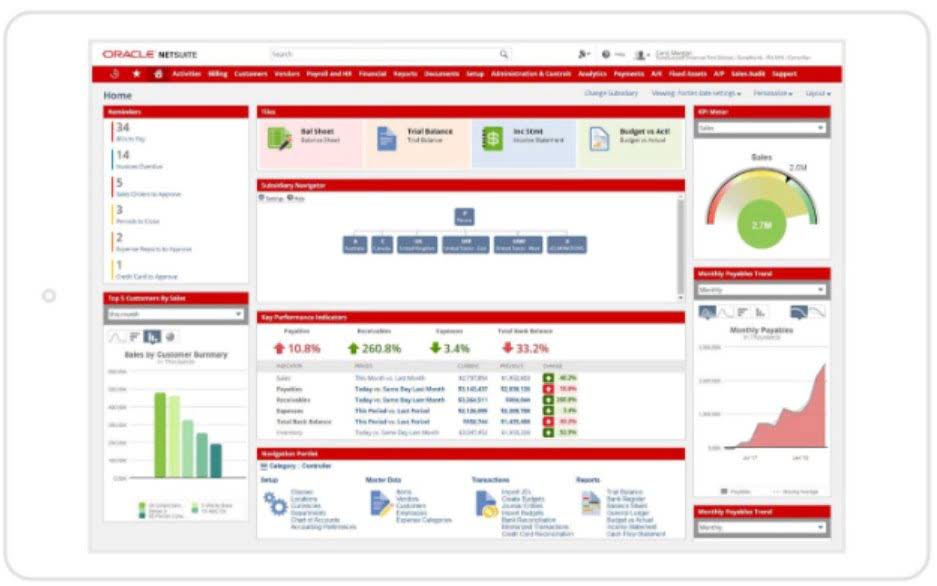
These statements provide different entities ‘ financial information to the stakeholders. For example, the statement of financial position provides the entity’s financial position liabilities, assets, and equity. Financial accounting also produced the entity’s financial statements as required by management, directors, shareholders, and regulators. To work in both fields, subject-specific skills and education are required. In addition, both fields provide good working environments and career opportunities.
Three components of financial statements
- However, the AI is not meant to take over parts of the engagement wholesale but instead act as a guide on each step of the process, which is part of Fieldguide’s philosophy of always having a human in the loop.
- Accountants also verify and reconcile financial data, maintain audit trails, and address any discrepancies to ensure the integrity of financial statements.
- In addition, accounting professionals are responsible for checking account balances and ensuring the accuracy of financial statements.
- Our platform features short, highly produced videos of HBS faculty and guest business experts, interactive graphs and exercises, cold calls to keep you engaged, and opportunities to contribute to a vibrant online community.
- They also prepare financial statements and tax filings and provide critical financial information for decision-making within the organization.
- Here’s a look at what the job involves, and how to work your way up to the role.
- Accountants ensure that an organization’s financial records comply with accounting standards and regulatory requirements.
Without accounting, investors would be unable to rely on timely or accurate financial information, and companies’ executives would lack the transparency needed to manage risks or plan projects. Regulators also rely on accountants for critical functions such as providing auditors’ opinions on companies’ annual 10-K filings. In short, although accounting is sometimes overlooked, it is absolutely critical for the smooth functioning of modern finance. Financial accounts have two different sets of rules they can choose to follow.
Want More Helpful Articles About Running a Business?
- Both fields require a high level of skill, education and comfort with quantitative analysis.
- This can be a great option if you want to ensure your books are in order, and that your company’s financial information is accurate, but it does come with some drawbacks.
- Double-entry accounting is also called balancing the books, as all of the accounting entries are balanced against each other.
- So let’s explore the key differences between finance and accounting, including their respective degree requirements, skill sets, and qualifications to get you hiring the just-right finance and accounting professionals for your business.
- Pursuing a bachelor’s degree from an accredited university is the most common first step toward becoming a forensic accountant.
- A statement of cash flow details a company’s income and debt over a period of time (usually a year).
- The educational requirements for a CFO are pretty rigorous, with most successful applicants for the job having a degree in finance, accounting, business management, business administration or banking.
The first, the accrual basis method of accounting, has been discussed above. These rules are outlined by GAAP and IFRS, are required by public companies, and are mainly used by larger companies. It depends on an individual’s career goals, interests, and personal preferences. Finance degrees offer a broader view of the financial world, with an emphasis on decision-making, investments, and risk management. Accounting degrees provide a more structured and rules-based education, which can benefit those who appreciate clear guidelines and enjoy working with financial data. Financial professionals work to optimize an organization’s financial performance.
- The key difference between finance and accounting comes down to how they consider a company’s financial records.
- This is the practice of recording and reporting financial transactions and cash flows.
- This includes income and owner contributions, minus any expenses or owner withdrawals.
- In this section, we’ll briefly review the roles of accountants vs. CPAs and tax professionals.
- Larger companies often have much more complex solutions to integrate with their specific reporting needs.
Importance of Financial Accounting:
Accounting is the process of recording financial transactions pertaining to a business. The accounting process includes summarizing, analyzing, and reporting these transactions to oversight agencies, regulators, and https://www.bookstime.com/articles/absorption-costing tax collection entities. The financial statements used in accounting are a concise summary of financial transactions over an accounting period, summarizing a company’s operations, financial position, and cash flows.

Difference Between Finance and Accounting FAQs
In this module’s activity you will have the opportunity to practice recording transactions in T accounts on your own in Excel. Accounting focuses on cash inflow and outflow, reconciling a company’s financial statements and records, financial accounting and delivering financial information to lenders, investors, and the general public. A private company is not required to share its financial statements outside of the organization; only registered (public) companies are.
How Financial Accounting Works
The accrual method of accounting, which is followed by most organizations, records transactions as they are agreed upon, as opposed to when they are completed. It allows for transactions to be made with credit or deferred payments, and operates under the idea that revenues and costs will smooth out over time to more accurately depict economic reality. This makes it possible to compare year-on-year growth of a company’s revenues, costs, and profits without factoring in one-off events, as well as seasonal and cyclical changes. Accountants and accounting professionals provide the necessary data and financial records to inform budgeting and planning decisions.
New to Business Essentials? Start here.
For example, you could work as a financial analyst, personal banker, credit controller or investment banker. It is my opinion that the content of this textbook will be relevant and current for at least a decade. Any changes made to accounting principles, Canadian or International, will be very easy and straightforward to update.
Small Business Accounting 101: 12 Steps for Basics and Setup (2024) – Shopify
Small Business Accounting 101: 12 Steps for Basics and Setup ( .
Posted: Thu, 25 Jan 2024 08:00:00 GMT [source]
Join over 3,400 global companies that choose Coursera for Business

Financial Accounting: Definition, Uses, Characteristics, and Importance


